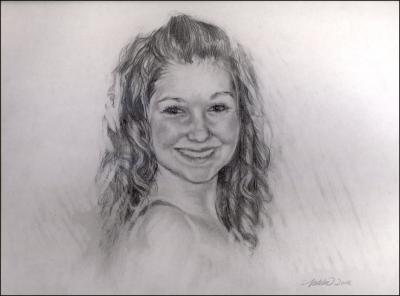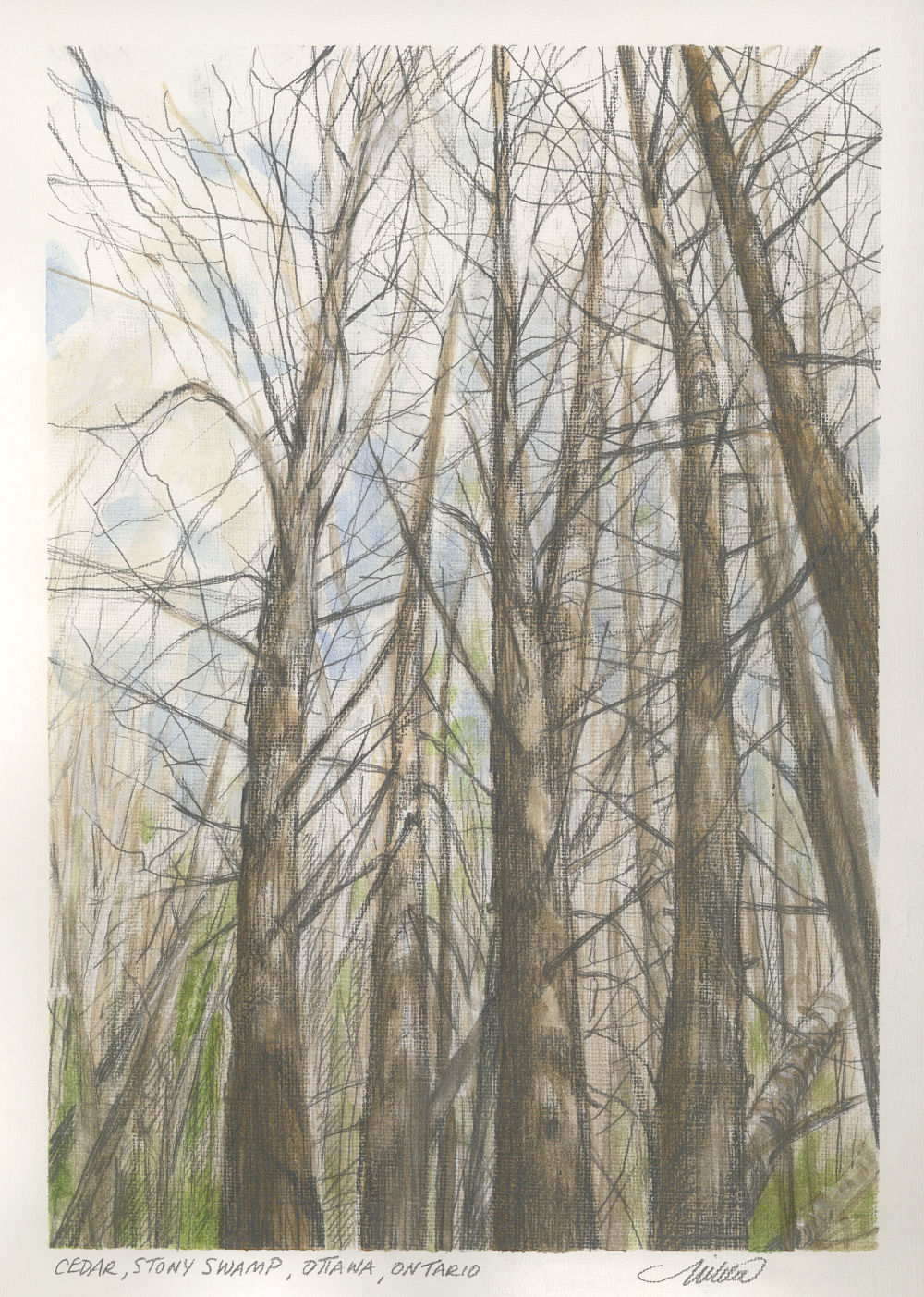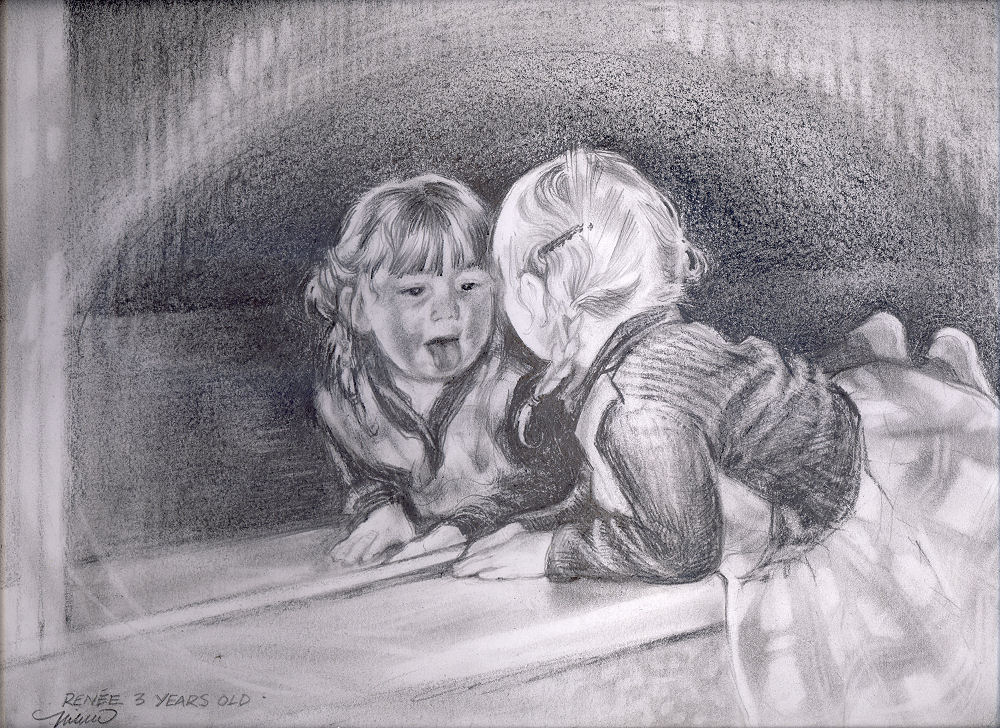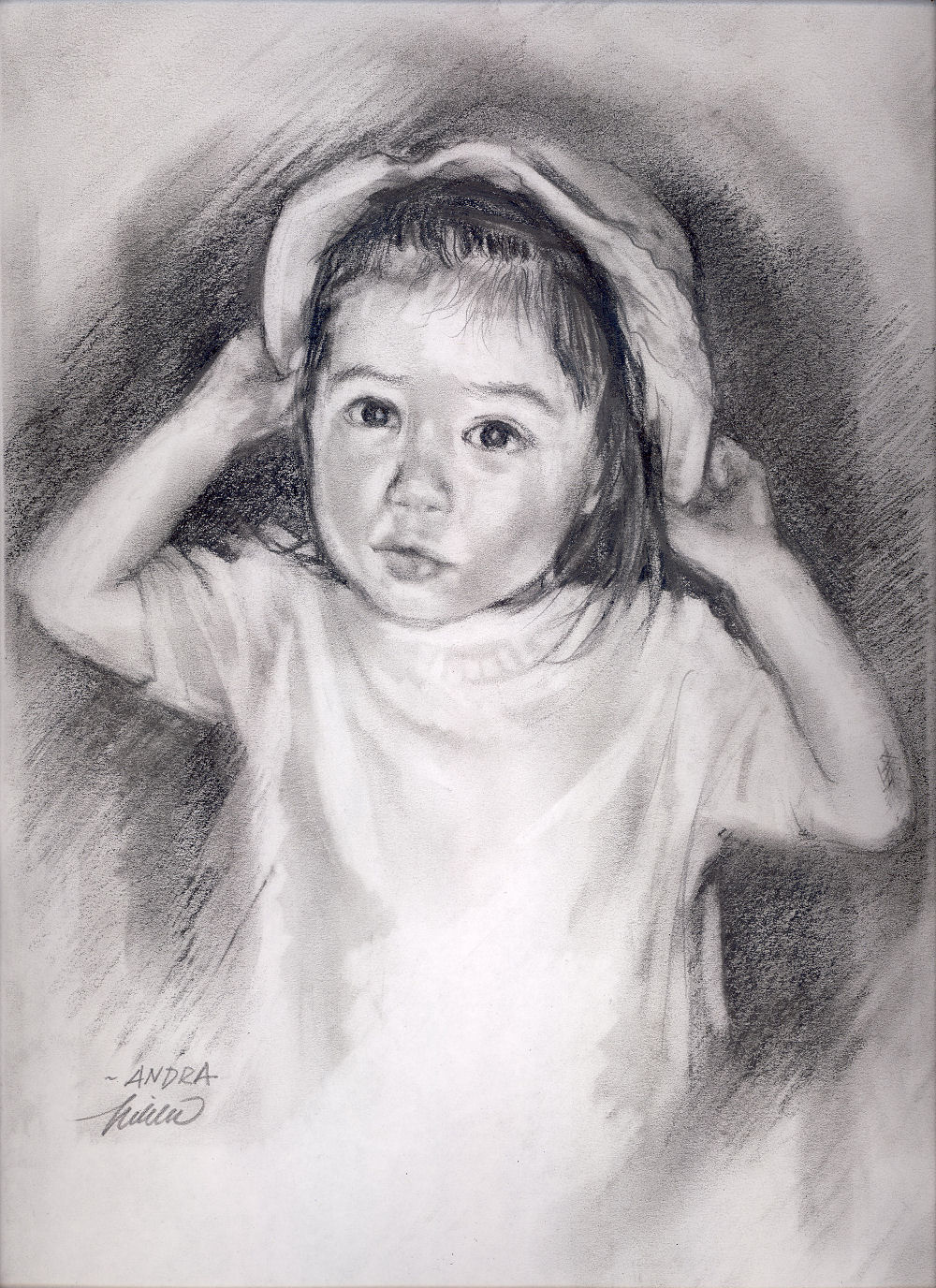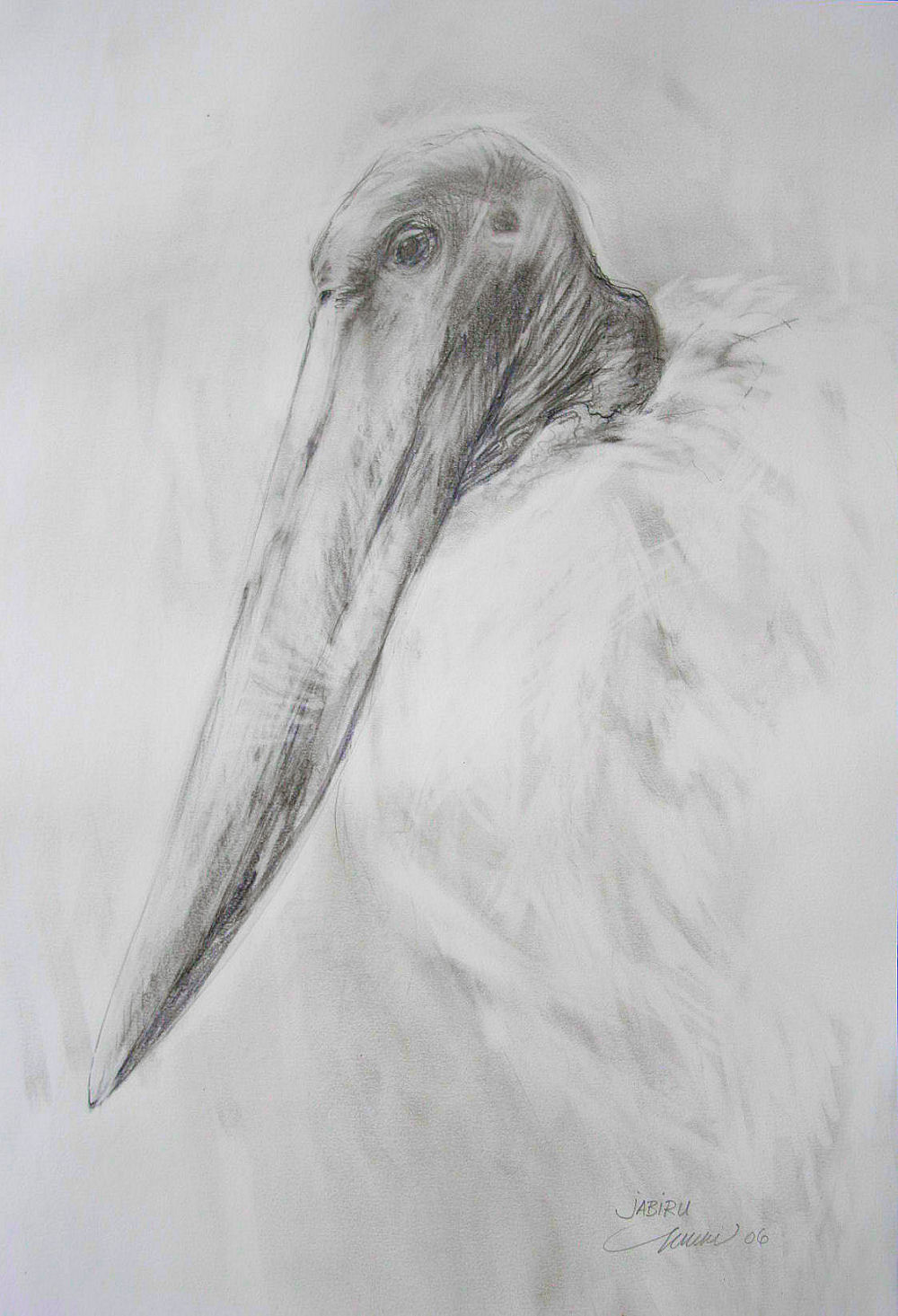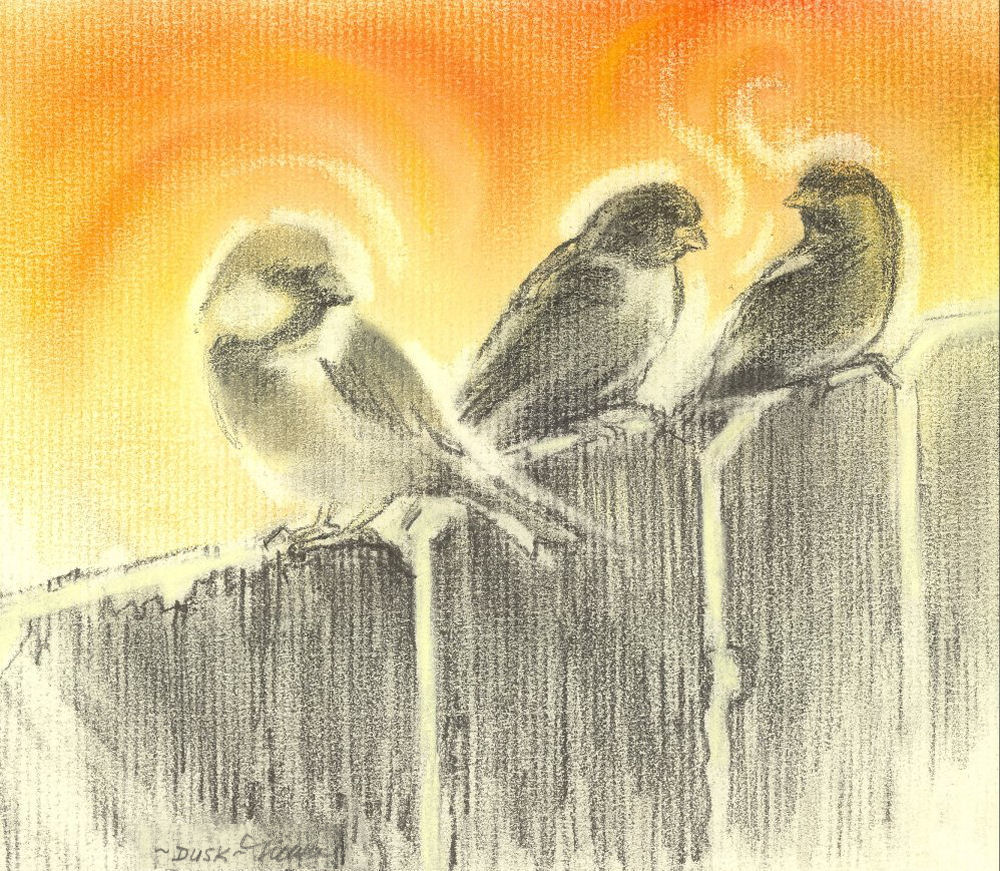graphite
Next Entries »Portraits
Sunday, June 29th, 2008
Josee, a portrait of one of my nieces. Gift, 11 x 14 inches graphite on paper. Drawing portraits is like brain surgery – one millimeter off, more or less, in any direction makes all the difference between success or failure!
Cedar, Stony Swamp
Monday, January 14th, 2008
Cedar, Stony Swamp, Ottawa, ON, Canada, 12H x 9W inch watercolor and graphite on 40lb cold-pressed premium watercolor paper. Framed size 26H x 22W inches.
Renee at Dance Class
Thursday, May 31st, 2007
Renee at Dance Class, 11 x 14 inches graphite on paper
Andra’s New Hat
Sunday, May 27th, 2007
Andra’s New Hat, 14 x 11 inches graphite on paper
Evelyn
Saturday, May 26th, 2007

Evelyn, 11 x 14 inches graphite, eraser on paper. When drawing I use the eraser as much as the pencil. Taking advantage of smudges that build up gradually is a good way to keep adjusting the placement of things and clarify details. This is especially effective with portraits.
Jabiru
Friday, September 1st, 2006
Jabiru at the Dallas World Aquarium, 24H x 18W inches graphite on paper
Post-dated note: Accepted in the J. Mane Gallery’s Fins, Feathers and Fur 2020 exhibition, unfortunately no longer shown in the gallery archives in 2022.
“Drawings have a job to do: to provide viewers with more than just a pretty picture. There are tones implied through those tones!”
Jabiru are large South American prehistoric-looking birds standing 4-5 ft. high. Reference photos for ‘Jabiru’ were taken at the Dallas World Aquarium, where I’ve spent many visits watching a pair of them interact. Fortunately, I can usually study them in silence, because everyone else’s attention is on the flashy coral-colored flamingos just down the aisle.
Before starting I envisioned a drawing based on Japanese principles of using fewer lines and shading, with empty spaces considered as much a part of the drawing as every mark.
This is not the prettiest subject, precisely one of the reasons I chose to keep the drawing soft. By purposely compromising the values and using a lighter touch, my hope was that the viewer’s response might be pleasant before thinking “ugly bird”. To explain further, the Jabiru’s feathers are pure white and its head including beak are very dark grey, almost black. I was stubborn about the style staying gentle and simple, having negative space speak as much.
Whereas a photograph utilizes the whole range of dark and light values, copying everything, a person chooses the amount and quality of dark and light values to apply in order to attain the intended the effect on our emotional impressions.
The Jabiru’s huge beak strikes a strong silhouette by shape alone, so to lessen the impact of the large, odd shape on a fairly empty page, extremes were avoided even though the bird’s beak is quite dark in reality.
I really want stress here that a drawing is not a photograph, and a photograph is not a drawing. Photographs might be the source of inspiration and for details that memory has missed or forgotten. Illustrations that are copied with attempts to produce an exact visual likeness, relying purely on the photo, lack a certain warmth no matter how well rendered they are. Art involves the human factor. A photo is a product of a machine; the visual details are copied with no sense or emotion; it does what it’s been designed to do. Drawings are subjective representations of all that we sense as well as see.
We interpret character of a subject not only visually, but also through our multidimensional senses.
At The Alamo
Tuesday, May 30th, 2006
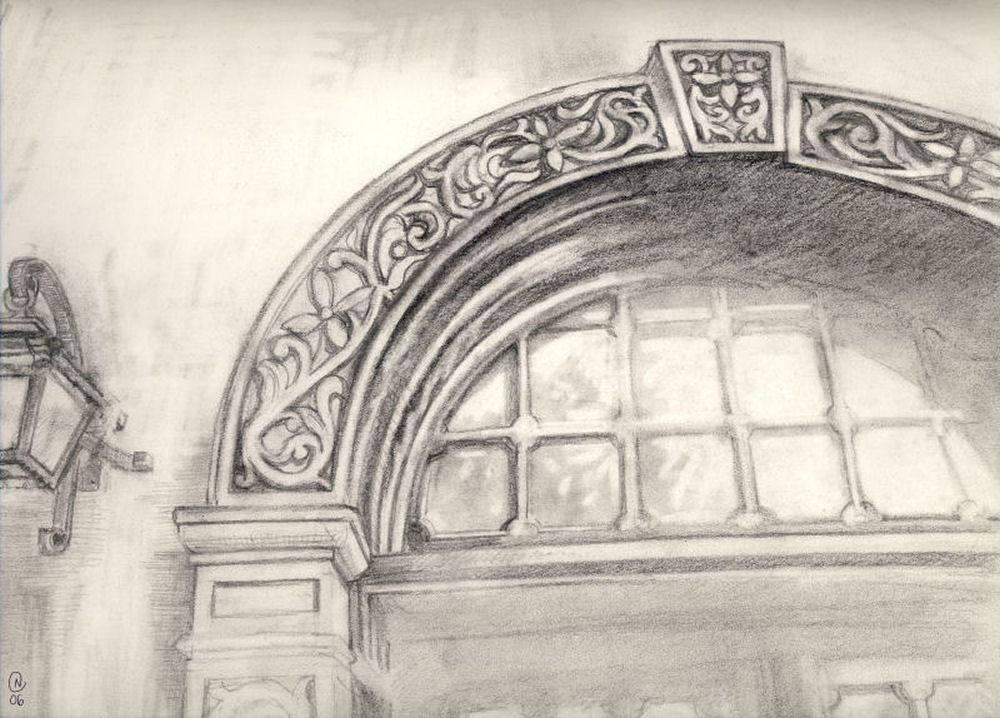
At The Alamo, carved stone detail on a window of the main building at The Alamo, San Antonio, Texas – 11H x 14W inches oil pastels, 3-inch-wide white double mat and 26H x 22W inch white custom-built white wood frame with crackle finish.
Dusk
Friday, April 7th, 2006
Dusk, 8H x 10W inches dry pastels, graphite on charcoal paper. A few sketches for Poet Hannah Gerber’s book The Perfection of Small Birds will be posted this week. This one was inspired by “Dawn”, a recent acrylic painting.
Next Entries »

